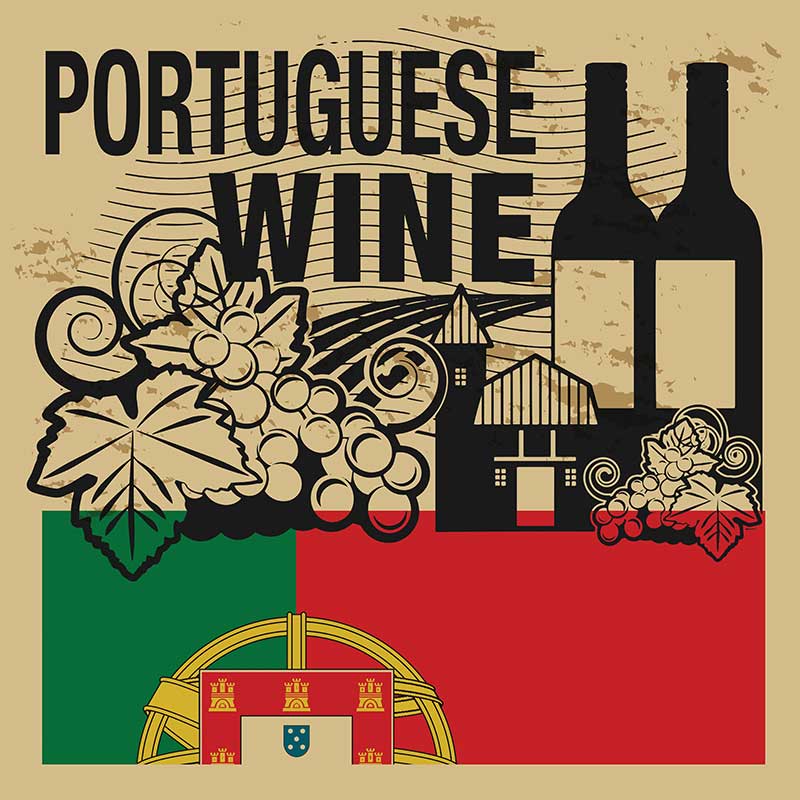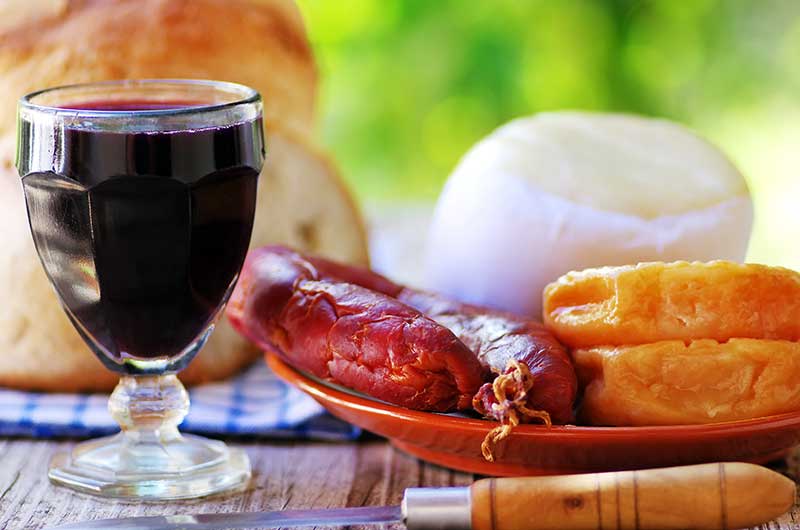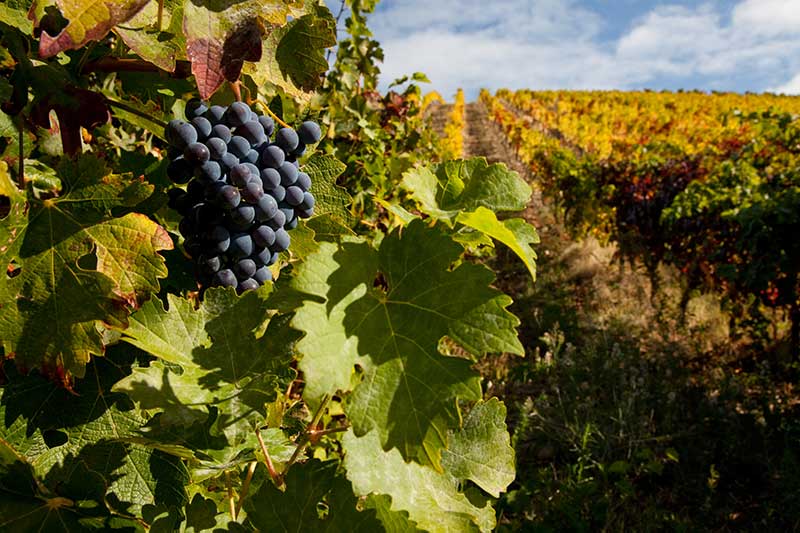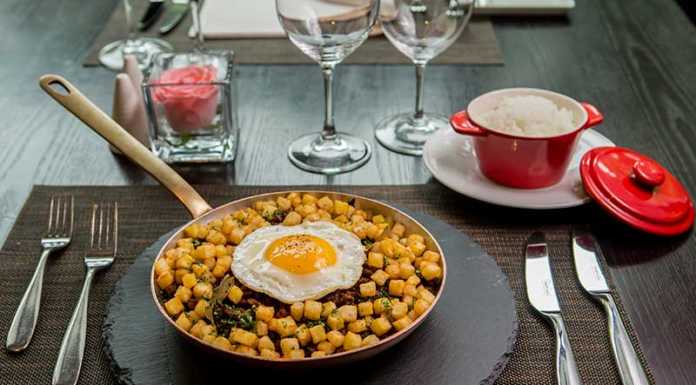The breadth and depth of the range of Portuguese wine available in Macao is second only to that of Lisbon. Prior to Handover in December 1999, Macao had been under Portuguese administration for 450 years and wine would have not only been part of the ship’s provisions but was traded, too. According to historian Charles Boxer, Portuguese wine is listed as part of the cargo alongside Flemish clocks and Indian chintzes on voyages to Japan in the 1500s.
Needless to say, there are some amazing Macau Portuguese restaurants to try while visiting Macau, which is one of 25 Creative Cities of Gastronomy.
Contents
Portuguese wine in Macao
Prior to Handover, says founder and chairman of Macau Wine Society, Filipe Santos, “Macau was dominated by Portuguese wine, with even Chinese restaurants offering Portuguese labels.
French wine was just too expensive, and Portuguese wine was popular with Macau Chinese, and also Hong Kong Chinese”.
Stories still circulate of top labels such as Barca Velha and Pera Manca being cheaper in Macao than in Lisbon, but Santos simply puts this down to poor portfolio management on the part of Macanese wine distributors.
He does think, however, that at the wholesale level, there is probably a price parity today between Macao and Portugal.
Factors which would include the incredible success of the 1982 Bordeaux vintage, and the growing reach of wine critic Robert Parker, saw French wine and in particular Bordeaux soar in price and thus prestige; and Portuguese wine was knocked off its pinnacle in Macao.
When the gaming industry started to really take off after 2002, the VIP rooms of prestigious casino hotels would be pouring not chilled Vinho Verde but classed growth red Bordeaux.
Big wine distributors such as ASC and Summergate moved in (as well as Watson’s Wine Cellar, a retail chain from Hong Kong), introducing good value Chilean and South African wine (at prices to compete with Portuguese wine), in addition to top Italian and Australian wines.
Portuguese wine had enjoyed a preferential duty rate (10% as opposed to 15% for all other countries) but in 2008, when duty was abolished, any price advantage was also gone.
The future for Portuguese wine in Macao
Santos finds it “disappointing” that top restaurants generally don’t have Portuguese wine anymore, citing as an example the one-Michelin-star Mediterranean Terrazza restaurant in Galaxy.
Macao’s hotel restaurants are “encouraged” to offer Portuguese wine, but it seems to have lost much of its lustre and few of the 30 million annual tourists show much interest.
In an attempt to help ameliorate this situation, The Academy of the Wines of Portugal is very active in Macao, offering wine courses – and qualifications – to the industry, through the Institute for Tourism Studies (IFT).
“I think the Academy is very important for Macau due to the history of Portuguese wines in Macau,” says David Wong, the Institute’s executive assistant manager-food and beverage.
“The wine classes help the local and budding sommeliers in learning more of Portuguese wines.”
Participants attend classes over two days, sit an exam, and on passing become Advanced Ambassadors. Maggie Mak, sommelier at Wynn Palace, and herself an Advanced Ambassador, notes that restaurant guests tend not to “trust” Portuguese wine, feeling more comfortable with French and Italian.
“It is very important to study and to grow more local Portuguese wine Ambassadors in Macau to help tourists pick up a nice bottle,” she says.
The golden era of Portuguese wine
Joao Pedro, a Portuguese former winemaker and today sales director for local Portuguese wine distributor Vino Veritas, believes that:
“Portuguese wines are still important for Macau, in terms of value and volume, for both producers and consumers. For the last 10 years I have seen a surge of Portuguese wines in Macau and nowadays you literally find every Portuguese wine (worth drinking) being represented in the market.”
He thinks, in any event, that Portuguese wine is going through a golden era. This era started, perhaps, when the 2011 vintage was splashed all over American magazine Wine Spectator.
In the magazine’s countdown of the top 100 wines of the year in 2014, a vintage port (Dow’s) took first place, and two red Douro table wines were in the top 10 (Chryseia and Quinta do Vale Meao).
For Alentejo brand Esporao, Macau is certainly an important market, and they own a 25 percent share.
Diogo Melo e Castro, who looks after the Macao trade, says the brand’s success began when Esporao Reserva 1996 was chosen as the official wine for the Handover ceremony.
He notes that Portuguese wine does not have a high profile in mainland China, from where the majority of tourists come. But Esporao says he has still seen sales increase in the past few years.
Where to drink Portuguese wine in Macao
1- Macau Soul
2- MGM
3- Clube Militar
4- Educational Restaurant at Institute of Tourism Studies (IFT)
5- Grand Lapa
Reasonably obviously, small but quality-driven Portuguese and Macanese restaurants – A Baia, A Lorcha, Miramar and Espaco Lisboa are good examples – offer small wine lists comprised almost exclusively of Portuguese wine.
However, many restaurants have begun to import their own Portuguese wine (particularly after tax on wine was reduced to zero, and almost anyone could become a wine importer) to save money, but quality is not necessarily assured.
As Sandy Leong, director of the large wine importer Greattime points out, there’s also an abiding tradition in Macao for residents to BYO (corkage is charged, none-the-less). This means that restaurants are less driven to stock serious bottles.
Portuguese wine is available in almost all the hotels, and very often by the glass (for example at Grand Lapa), and there may be some good offers here and there during Happy Hour. MGM probably carries the most Portuguese (and the best) wines.
One of the most stunning dining rooms in Asia, the restaurant of Clube Militar is open to the public.
It offers exclusively Portuguese food and Portuguese wine, and the list is excellent, including some treasures by the glass.
Club facilities include a cosy little bar and a grandly furnished drawing-room – perfect for enjoying a bottle of wine – and these can be accessed through reciprocal club memberships (check if your own club has a relationship).
Open to all is the Educational Restaurant at the Institute of Tourism Studies (IFT) which offers an exclusively Portuguese wine list, and several wines by the glass. There’s also a bar, here, and a comfortable seating area for those who don’t want to dine.
But the jewel in the crown is perhaps the casual wine bar and sometimes jazz club Macao Soul, owned by a British couple.
The Portuguese wine list is excellent, and mark-ups incredibly low.
Check opening times/days as these can be inconsistent.
Where to buy Portuguese wine in Macau
The retail sector, like almost all aspects of Macao life, has changed considerably within the past decade.
Where once there was a small shop selling tins of Portuguese olive oil and little packs of spices, there’s now a pharmacy or a mobile phone store.
Downtown wine shops selling or specializing in Portuguese wine have gone the same way; the victim of hiked rents.
Macau Wine Museum, which had a retail section, has also closed down to allow for the expansion of the Grand Prix Museum until a suitable new site is found for it.
Food and wine distributor Haigan Wong, director of Adega Royale, adds that the majority of tourists to Macao – mainland Chinese – are not interested in buying Portuguese wine; and that wine-loving Macao residents tend to buy by the case, direct from distributors. Here are three places to shop for Portuguese wine in Macao.
1- The centrally located New Yoahan (Avenida Doutor Mario Soares 90) has a food hall and adjacent wine section which includes a fair selection of Portuguese labels.
2- Close by, the basement level New Green Box Pavilions (Avenida da Praia Grande 417-425, Centro Commercial Praia Grande, Cave B), a kind of ‘lifestyle’ store, similarly sells food items alongside some Portuguese wine.
3- The Royal supermarket chain, such as the branch on Rua de Pedro Nolasco da Silva, just off Largo Senado, carries a selection of Portuguese labels.
A beginner’s guide to Portuguese wine
Best Portuguese wine regions
The Douro is traditionally a port-producing region but in 1952, a red table wine called Barca Velha was commercially launched. It is in the past three decades that still red wines have really taken off, and this is probably the best wine region in Portugal. It is now also producing some excellent white wines.
Other regions to look out for are The Algarve, which is not only good for golf, enjoys a temperate climate (cooler than Alentejo) and is believed to have great potential. The Dao region, having broken free of the tyranny of the cooperative, has the conditions to make wines of even greater elegance than those of the Douro.
Portuguese red wine
Best reds are the elegant reds from the Douro, made with a blend of indigenous grapes, defined by fresh acidity as well as tannins. You can’t go wrong with the widely available wines of The Douro Boys ‘club’ (Vallado, Crasto, Vale Meao, Niepoort, Vale D. Maria).
Portuguese white wine
Best whites are Encruzado, Bical and Arinto are probably the most interesting indigenous varieties, but the blends from the Douro are also making waves. Try the wines of Luis Pato, or daughter Filipa Pato, from Bairrada (in fact, try any wine made them).
Portuguese green wine
The so-called green wines are those from the region of Vinho Verde. The big brands are little more than refreshment but pay more, and the wines can be very classy. Single varietal Alvarinho is usually the best and Soalheiro is possibly the ultimate producer.
Portuguese rose wine
Best pinks: It might be nostalgic to order a bottle of Mateus Rose or Lancer, but Portuguese rose does not tend to hit the high notes.
What about Portuguese sparkling wine?
Avoid! There is no Prosecco equivalent, and certainly no Champagne equivalent.
Portuguese port
Best ports: Vintage port, such as the acclaimed 2011 vintage, is viewed as the jewel in the crown. But the category overall is seeing renewed vigour thanks to interest in the aged tawnies. The best of these are 20-year-old or 30-year old; are barrel-aged so ‘tawny’ rather than ruby in colour and show a lovely honeyed sweetness.
Annabel Jackson is a former part-time lecturer in wine studies at the IFT in Macau, a former full-time lecturer in the wine division of Plumpton College (UK); and an Advanced Ambassador for the Academy of the Wines of Portugal. She is currently writing another book about Macanese cuisine.

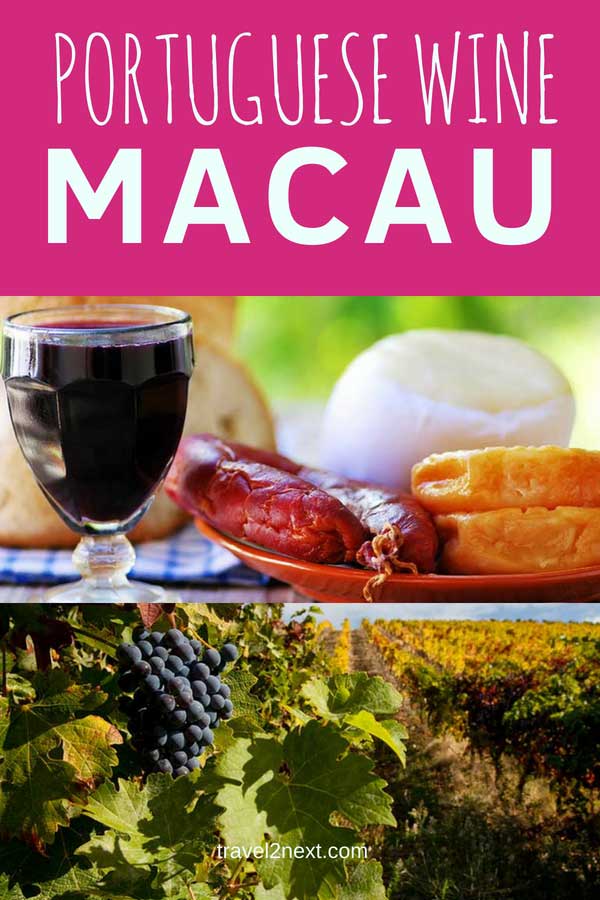
Plan Your Trip
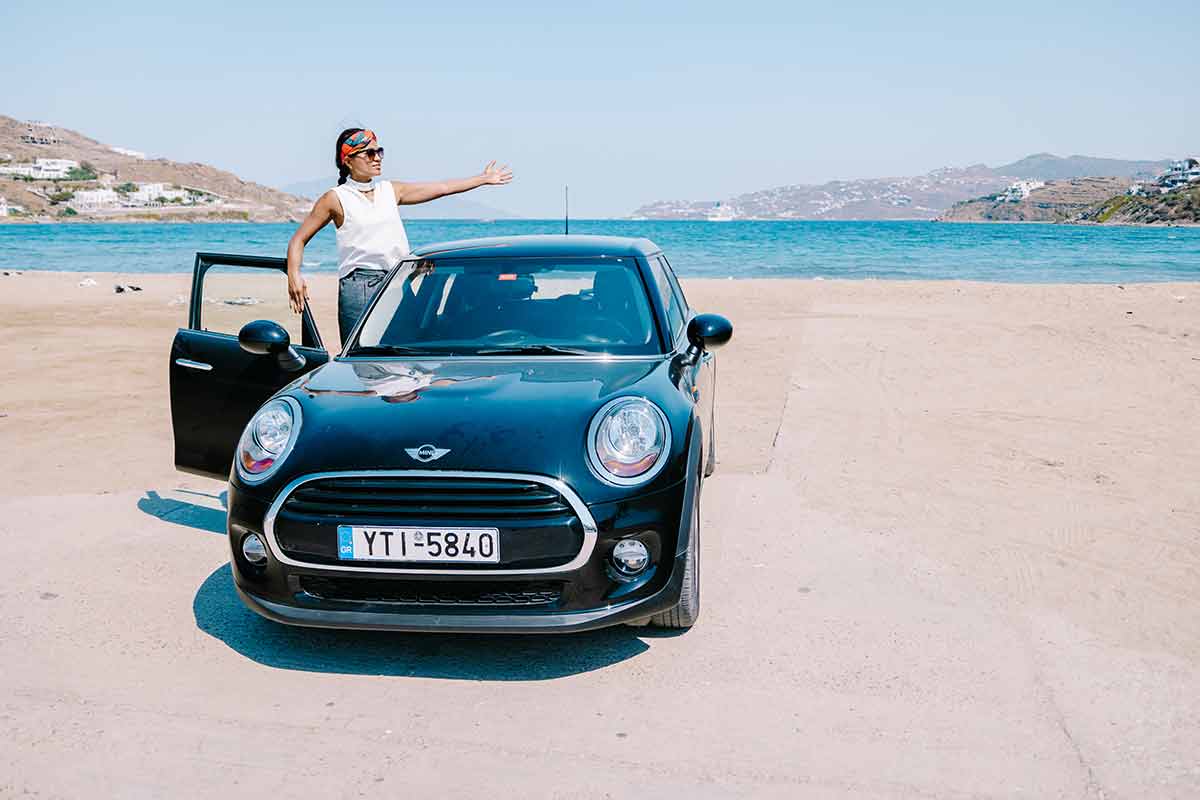
Rent A Car – Find the best car rental rates at Discover Cars. They compare car hire companies to provide you with the best deal right now.

Find A Hotel – If you’re curious about this article and are looking for somewhere to stay, take a look at these amazing hotels.
